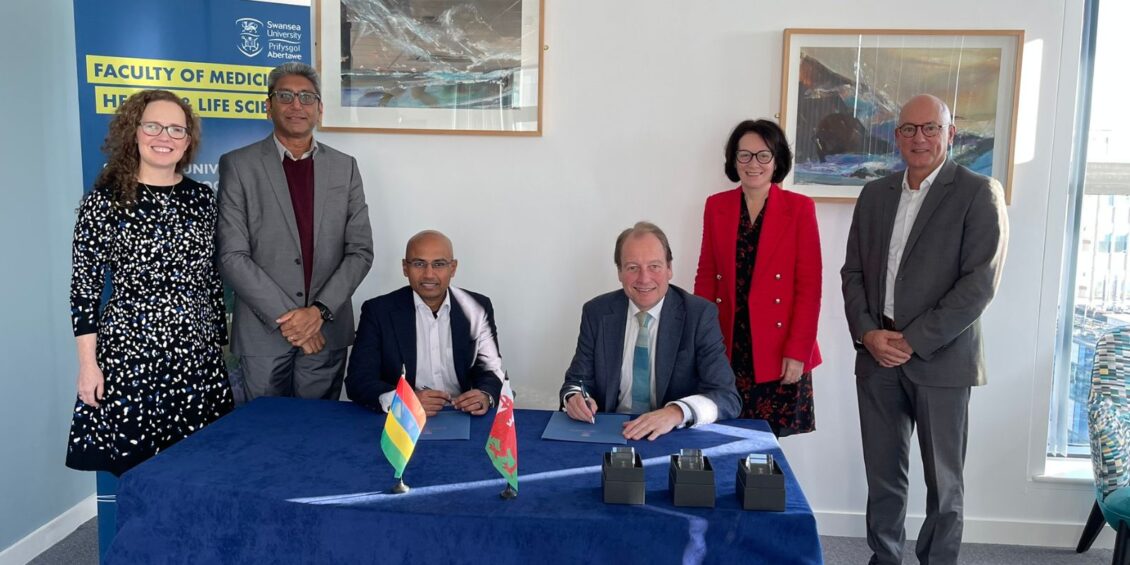Nurses in Mauritius will be able to benefit from Swansea University’s award-winning healthcare training as part of a new international collaboration.
The University will be providing a one-year BSc Nursing (Top-up) programme after signing a partnership agreement with Mauritian-based Uniciti International Education Hub (UIEH).
The programme includes modules such as health promotion and public health; evidence-based practice, nursing research and an introduction to clinical leadership. It is designed for diploma-qualified registered nurses who are looking to further enhance their personal and professional development.
Starting in September, it will be made up of hybrid-format classes, with both in-person sessions on the UIEH campus and online courses, delivered by a qualified team from the University.
Professor Keith Lloyd, Pro-Vice Chancellor and Executive Dean of the Faculty of Medicine, Health and Life Science said: “We are delighted to embark on this partnership with UIEH, sharing our academic excellence in nursing to upskill the nurses of Mauritius.
“With more than 30 years’ experience in training nurses and healthcare professionals for the NHS, students on the top-up programme can be assured that they will leave their studies equipped to meet the regional demand for well-qualified, competent, and confident nurses.
“We look forward to being a part of our new students’ future success.”
Located in Pierrefonds in Mauritius, UIEH is a centre of academic excellence offering a range of university programmes in partnership with globally renowned institutions. It is part of Medine, a major diversified group in Mauritius.
Managing Director of UIEH Dhanjay Jhurry said: “Our partnership underscores Uniciti International Education Hub’s commitment to academic excellence. This collaboration aims to meet local and regional demand for healthcare professionals while offering diploma-holding nurses an opportunity to pursue a bachelor’s degree.”








Leave a Reply
View Comments